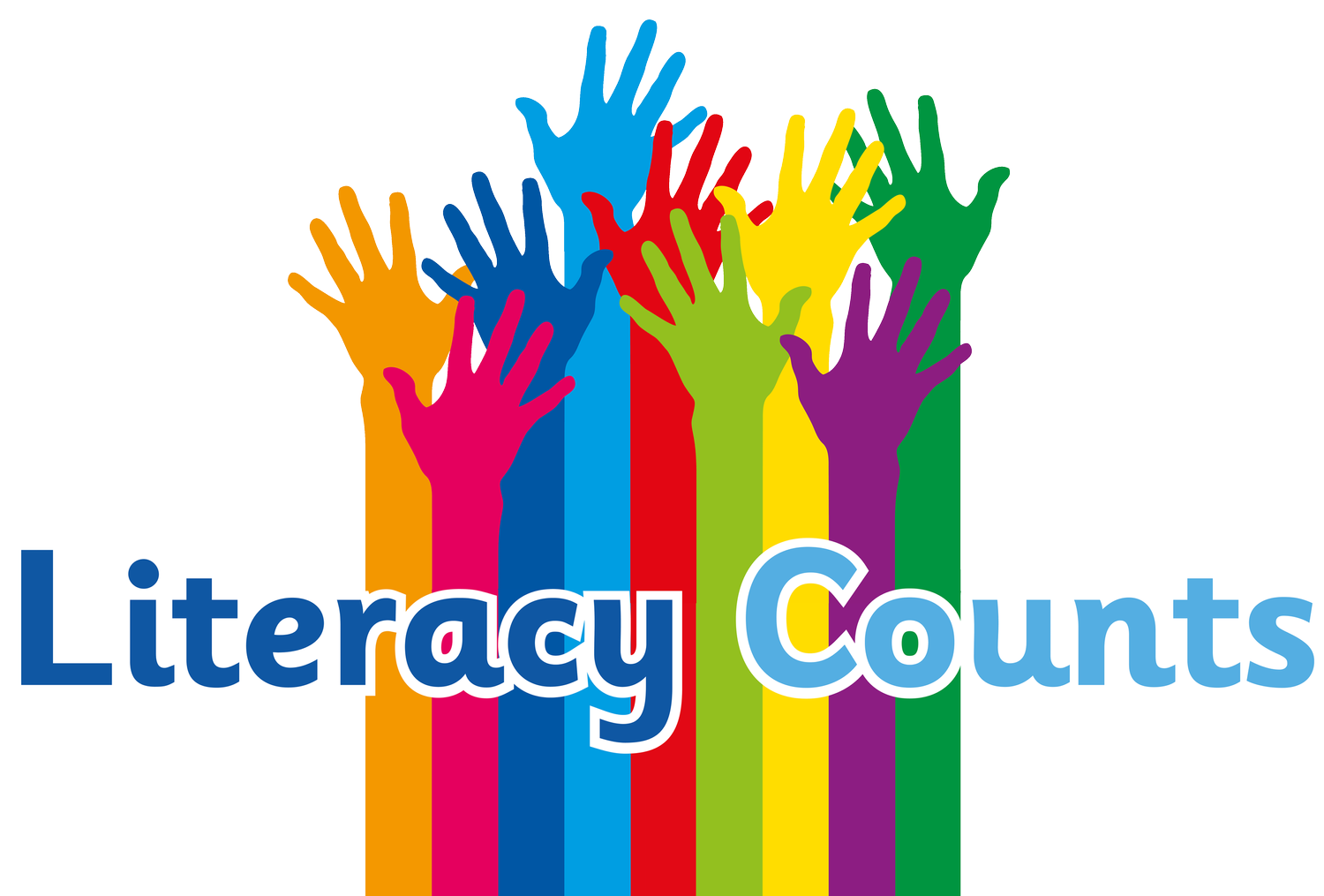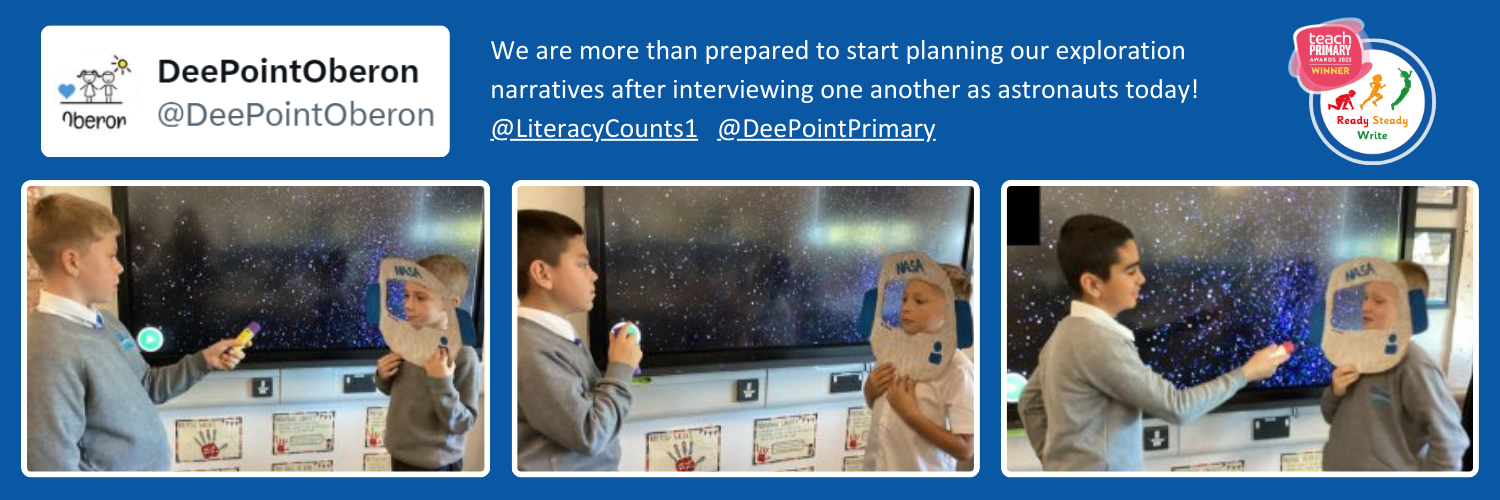Developing Oracy through Drama in Ready Steady Write
Ready Steady Write is designed to inspire, engage, and immerse children in the writing process. One of the most powerful aspects of the resource is its focus on developing oracy through drama activities. By using carefully crafted provocations for drama, Ready Steady Write helps children explore ideas, articulate their thoughts, and bring stories to life before transitioning these ideas into their writing.
In this post, we’ll look at how drama activities are woven into the Ready Steady Write units, the benefits of oracy development, and share examples of schools that have embraced this creative approach to learning.
We love how the simple act of using a gluestick as a microphone transforms this Year 4 role-play into a fun and engaging newspaper report! Based on their unit The Whale, the children took on the roles of reporters and witnesses, interviewing each other to prepare for writing about a rare marine animal sighting. Thank you Woodchurch CofE Primary School for sharing these wonderful pictures!
Why Oracy Matters in Writing
Strong writing begins with strong verbal communication. Oracy, the ability to express ideas clearly and confidently through speech, is essential to the writing process. Children who can articulate their thoughts aloud are better equipped to structure their ideas on paper.
Ready Steady Write integrates oracy development into every unit through activities like book talk, drama, and role-play. These activities provide children with the opportunity to explore key story elements, characters, and themes through discussion and performance. Whether it’s debating a character’s motivation, acting out a scene, or imagining alternative story endings, these oracy-based provocations ignite curiosity and excitement.
We love how the use of the interactive whiteboard backdrop really brings this activity to life, immersing the children even further into their astronaut role-play as they prepare to plan their exploration narratives. Thank you to Dee Point Primary School for sharing a snippet of your Year 5 unit, When We Walked on the Moon.
Drama and Storytelling: A Powerful Combination
Drama and storytelling go hand in hand. In Ready Steady Write, drama is used to deepen children’s understanding of narrative structure, character development, and language choices. By acting out scenes, children gain a clearer sense of how stories unfold and how characters interact, which informs their own writing.
In EYFS and Year 1, Ready Steady Write incorporates Story Friends and Story Songs to engage children in retelling and performing key elements of a story. Characters like Octopus Opening and Elephant Ending help children visually and physically connect with the parts of a narrative. Drama activities in these early years not only build writing foundations but also boost confidence in speaking and performing.
Real-World Examples from Schools
Schools across the country are embracing the drama provocations in Ready Steady Write, and the results are inspiring! These examples show how Ready Steady Write’s focus on drama has helped children engage more deeply with the literature and produce writing that is full of imagination, empathy, and originality.
We're thrilled to see Year 4W creating freeze frames as part of their Ready Steady Write unit on The Whale! This imaginative approach helps them visualise what they've spotted in the water, setting the stage for their upcoming newspaper reports. Thank you to Bishop Eaton Primary School for sharing.
The Impact of Oracy on Writing Outcomes
The drama-based provocations in Ready Steady Write serve as a powerful tool for improving writing outcomes. By giving students the space to articulate their ideas aloud, Ready Steady Write encourages them to think critically about the stories they are writing, the language they are using, and the impact of their words. This focus on speaking and listening has a direct impact on the quality and depth of their written work.
We're delighted to see Oak Class engaging with The Iron Man, a very popular Year 3 unit in Ready Steady Write! Taking on the roles of reporters to explore the local community’s reaction to the Iron Man's escape really brings the story to life. Thank you to Kirkby CofE Primary School for sharing these brilliant pictures!
Ready to Transform Writing in Your School?
Drama and oracy are at the heart of what makes Ready Steady Write so effective in building confident, articulate writers. By immersing children in drama activities and giving them the tools to verbalise their thoughts, Ready Steady Write sets the stage for creative, thoughtful, and high-quality writing.
Are you ready to see the impact of Ready Steady Write in your school?
👉 Find out more: Ready Steady Write







